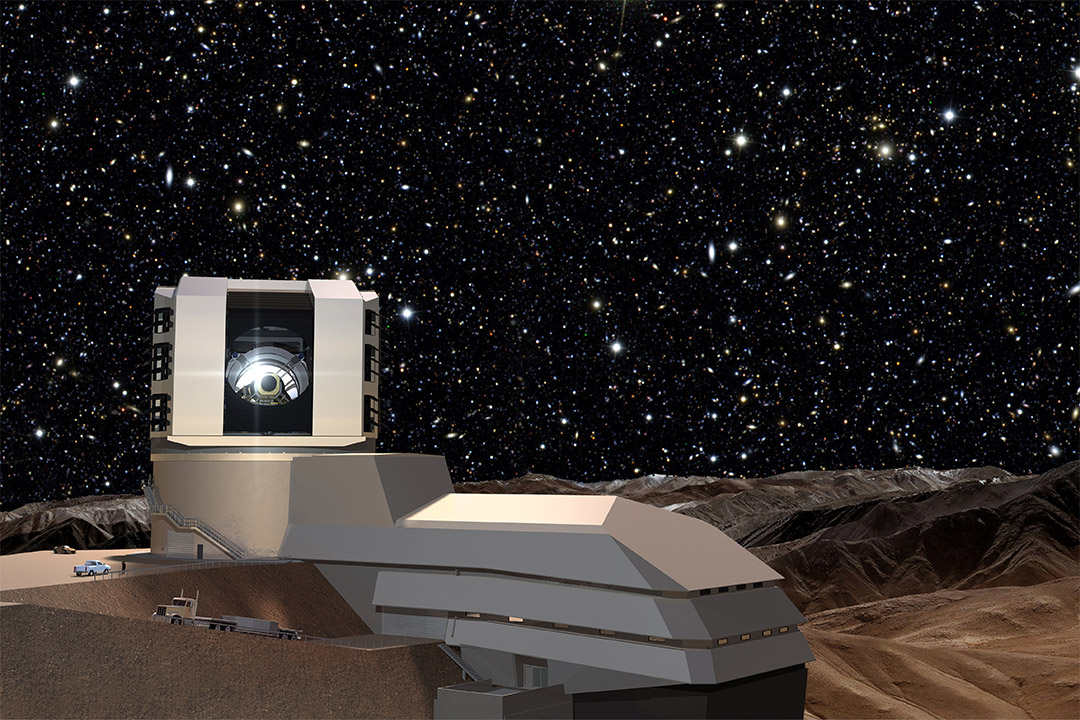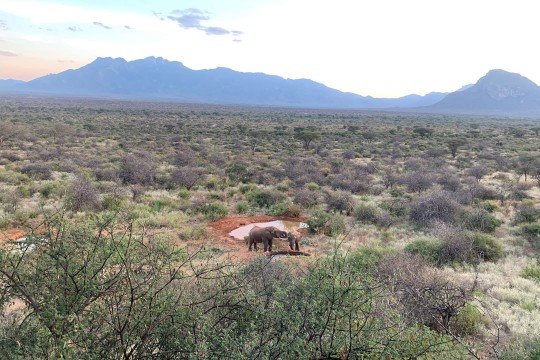RIT joins LSST Corporation to prepare for the most ambitious all-sky survey of the universe
RIT will help the scientific community get ready to use data produced by the new facility
Todd Mason, Mason Productions Inc. / LSST Corporation
A starry night sky provides a background for the LSST facilities building on Cerro Pachón. The LSST will carry out a deep, 10-year imaging survey in six broad optical bands over the main survey area of 18,000 square degrees.
Scientists are currently building the Large Synoptic Survey Telescope (LSST), which will conduct the most ambitious all-sky survey of the universe to date, and Rochester Institute of Technology is thinking about ways to mine through the treasure trove of data it will produce. RIT recently joined the LSST Corporation, a group of nearly 40 U.S. and Chilean institutional members focused on preparing the scientific community to use the new facility.
Beginning in 2022, LSST will conduct a 10-year survey of the sky that will deliver a 60-petabyte set of images and a 15-petabyte data catalog to study some of the most pressing questions about the structure and evolution of the universe and objects within it. The survey is designed to probe dark energy and dark matter, take an inventory of the solar system, explore the transient optical sky and map the Milky Way.
“Between now and when the survey starts, a big push in the astronomical community is getting ready for the onslaught of data LSST will produce,” said Jeyhan Kartaltepe, assistant professor of physics and astronomy. “That means developing new techniques for processing and dealing with the data. The organizations in the LSST Corporation are focused on training the next generation of astronomers in these data science tools because that’s going to be a big part of their future careers. It will be important for astronomers to learn things like different machine learning techniques that might help identify the types of sources that they are interested in.”
As a part of the LSST Corporation, RIT joins a science community that includes many of the world’s leading astrophysicists, cosmologists and particle physicists. Kartaltepe said that by joining the nonprofit organization, RIT will have a say in some of the future directions of the survey and what the data products are going to look like. It will also be an important opportunity to get students involved early in the survey and prepared for the big data challenges LSST will bring.
Additional information about the LSST Corporation is available at https://www.lsstcorporation.org.













